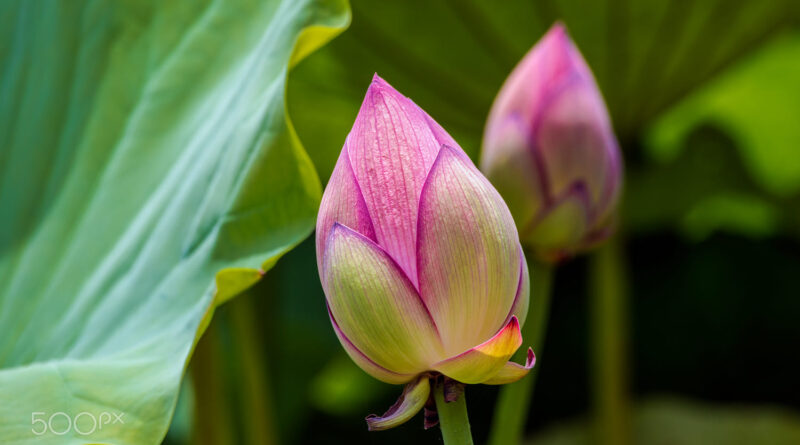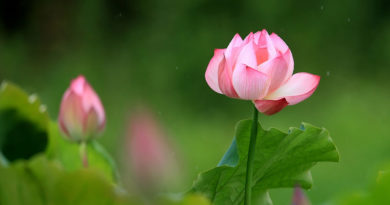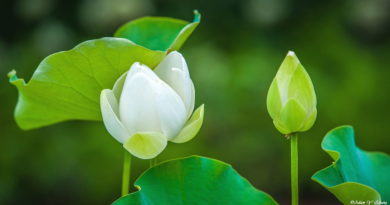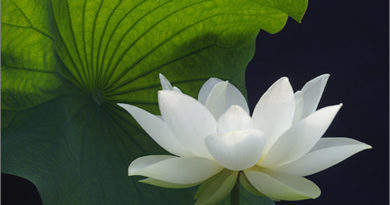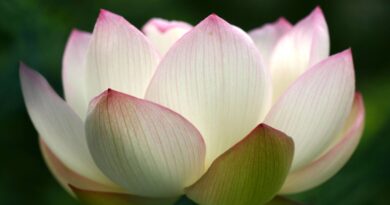Division Ii –– Nidāna Book 17 –– Rāhula Saṃyutta Chapter 1 –– Paṭhamo Vagga
Sutta Pitaka
Saṃyutta Nikāya
Division II –– Nidāna
Book 17 –– Rāhula Saṃyutta
Chapter 1 –– Paṭhamo Vagga
Namo tassa bhagavato arahato sammā sambuddhassa
17. 1. 1.
(1) Cakkhu –– The Eye
1. I heard thus. At one time the Blessed One was living in the monastery offered by Anāthapiṇḍika in Jeta’s grove in Sāvatthi.
2. Then venerable Rāhula approached the Blessed One worshipped and sat on a side.
3. Sitting on a side venerable Rāhula said to the Blessed One: “Venerable sir, Blessed One, may I be taught so that I would withdraw and seclude and abide diligent and zealous to dispel.”
4. “Rāhula, is the eye permanent or impermanent?”
“It’s impermanent, venerable sir.”
“That which is impermanent is it unpleasant or pleasant?”
“It’s unpleasant, venerable sir.”
“That which is impermanent, unpleasant, a changing thing is it suitable to be considered ‘that is mine, I am that, it’s my self?’”
“That is not so, venerable sir.”
5. “Rāhula, is the ear … re …
6. … re … nose … re …
7. … re … tongue … re …
8. … re … the body … re …
9. … re … the mind permanent or impermanent?”
“It’s impermanent, venerable sir.”
“That which is impermanent is it unpleasant or pleasant?”
“It’s unpleasant, venerable sir.”
“That which is impermanent, unpleasant, a changing thing is it suitable to be considered ‘that is mine, I am that, it’s my self?’”
“That is not so, venerable sir.”
10. “Rāhula, the noble disciple seeing it thus turns away from the eye, turns away from the ear, turns away from the nose, turns away from the tongue, turns away from the body and turns away from the mind.
11. “Turning away detaches himself, is dispassionate and is released. Released, knowledge arises, ‘Birth is destroyed, the holy life is lived, duties are done, there is nothing more to wish’.”
17. 1. 2.
(2) Rūpam –– Matter
1. I heard thus. At one time the Blessed One was living in the monastery offered by Anāthapiṇḍika in Jeta’s grove in Sāvatthi.
2. Then venerable Rāhula approached the Blessed One worshipped and sat on a side.
3. Sitting on a side venerable Rāhula said to the Blessed One: “Venerable sir, Blessed One, may I be taught so that I would withdraw and seclude and abide diligent and zealous to dispel.”
4. “Rāhula, are forms permanent or impermanent?”
“They are impermanent, venerable sir.”
“That which is impermanent is it unpleasant or pleasant?”
“It’s unpleasant, venerable sir.”
“That which is impermanent, unpleasant, a changing thing is it suitable to be considered ‘that is mine, I am that, it’s my self?’”
“That is not so, venerable sir.”
5. “Rāhula, are sounds … re …
6. … re … scents … re …
7. … re … tastes … re …
8. … re … touches … re …
9. … re … ideas permanent or impermanent?”
“They are impermanent, venerable sir.”
“That which is impermanent is it unpleasant or pleasant?”
“It’s unpleasant, venerable sir.”
“That which is impermanent, unpleasant, a changing thing is it suitable to be considered ‘that is mine, I am that, it’s my self?’”
“That is not so, venerable sir.”
10. “Rāhula, the noble disciple seeing it thus turns away from forms turns away from sounds, turns away from scents, turns away from tastes, turns away from the body and turns away from ideas.
11. “Turning away detaches himself, is dispassionate and is released. Released, knowledge arises, ‘Birth is destroyed, the holy life is lived, duties are done, there’s nothing more to wish’.”
17. 1. 3.
(3) Viññaṇa –– Consciousness
1. I heard thus. At one time the Blessed One was living in the monastery offered by Anāthapiṇḍika in Jeta’s grove in Sāvatthi.
2. Then venerable Rāhula approached the Blessed One worshipped and sat on a side.
3. Sitting on a side venerable Rāhula said to the Blessed One: “Venerable sir, Blessed One, may I be taught so that I would withdraw and seclude and abide diligent and zealous to dispel.”
4. “Rāhula, is eye-consciousness permanent or impermanent?”
“It’s impermanent, venerable sir.”
“That which is impermanent is it unpleasant or pleasant?”
“It’s unpleasant, venerable sir.”
“That which is impermanent, unpleasant, a changing thing is it suitable to be considered ‘that is mine, I am that, it’s my self?’”
“That is not so, venerable sir.”
5. “Rāhula, is ear-consciousnes … re …
6. … re … nose-consciousness … re …
7. … re … tongue-consciousness … re …
8. … re … body-consciousness … re …
9. … re … mind-consciousness permanent or impermanent?”
“It’s impermanent, venerable sir.”
“That which is impermanent is it unpleasant or pleasant?”
“It’s unpleasant, venerable sir.”
“That which is impermanent, unpleasant, a changing thing is it suitable to be considered ‘that is mine, I am that, it’s my self?’”
“That is not so, venerable sir.”
10. “Rāhula, the noble disciple seeing it thus, turns away from eye-consciosness, turns away from ear-consciosness, turns away from nose-consciosness, turns away from tongue-consciosness, turns away from body-consciosness and turns away from mind-consciosness.
11. “Turning away detaches himself, is dispassionate and is released. Released, knowledge arises, ‘Birth is destroyed, the holy life is lived, duties are done, there’s nothing more to wish’.”
17. 1. 4.
(4) Samphasso –– Contact
1. I heard thus. At one time the Blessed One was living in the monastery offered by Anāthapiṇḍika in Jeta’s grove in Sāvatthi.
2. Then venerable Rāhula approached the Blessed One worshipped and sat on a side.
3. Sitting on a side venerable Rāhula said to the Blessed One: “Venerable sir, Blessed One, may I be taught so that I would withdraw and seclude and abide diligent and zealous to dispel.”
4. “Rāhula, are contact of forms permanent or impermanent?”
“They are impermanent, venerable sir.”
“That which is impermanent is it unpleasant or pleasant?”
“It’s unpleasant, venerable sir.”
“That which is impermanent, unpleasant, a changing thing is it suitable to be considered ‘that is mine, I am that, it’s my self?’”
“That is not so, venerable sir.”
5. “Rāhula, are contact of sounds … re …
6. … re … contact of scents … re …
7. … re … contact of tastes … re …
8. … re … contact of touches … re …
9. … re … contact of ideas permanent or impermanent?”
“They are impermanent, venerable sir.”
“That which is impermanent is it unpleasant or pleasant?”
“It’s unpleasant, venerable sir.”
“That which is impermanent, unpleasant, a changing thing is it suitable to be considered ‘that is mine, I am that, it’s my self?’”
“That is not so, venerable sir.”
10. “Rāhula, the noble disciple seeing it thus turns away from the contact of forms turns away from the contact of sounds, turns away from the contact of scents, turns away from the contact of tastes, turns away from bodily contacts and turns away from the contact of ideas
11. “Turning away detaches himself, is dispassionate and is released. Released, knowledge arises, ‘Birth is destroyed, the holy life is lived, duties are done, there’s nothing more to wish’.”
17. 1. 5.
(5) Vedana –– Feelings
1. I heard thus. At one time the Blessed One was living in the monastery offered by Anāthapiṇḍika in Jeta’s grove in Sāvatthi. Then venerable Rāhula approached the Blessed One worshipped and sat on a side. Sitting on a side venerable Rāhula said to the Blessed One: “Venerable sir, Blessed One, may I be taught so that I would withdraw and seclude and abide diligent and zealous to dispel.”
2. “Rāhula, are feelings born of eye contact permanent or impermanent?”
“They are impermanent, venerable sir.”
“That which is impermanent is it unpleasant or pleasant?”
“It’s unpleasant, venerable sir.”
“That which is impermanent, unpleasant, a changing thing is it suitable to be considered ‘that is mine, I am that, it’s my self?’”
“That is not so, venerable sir.”
5. “Rāhula, are feelings born of ear contact … re …
6. … re … feelings born of nose ontact … re …
7. … re … feelings born of tongue contact … re …
8. … re … feelings born of body contact … re …
9. Rāhula, are feelings born of mind contact permanent or impermanent?”
“They are impermanent venerable sir.”
“That which is impermanent is it unpleasant or pleasant?”
“It’s unpleasant, venerable sir.”
“That which is impermanent, unpleasant, a changing thing is it suitable to be considered ‘that is mine, I am that, it’s my self?’”
“That is not so, venerable sir.”
10. “Rāhula, the noble disciple seeing it thus turns away from feelings born of eye contact turns away from feelings born of ear contact, turns away from feelings born of nose contact, turns away from feelings born of tongue contact turns away from feelings born of body contact and turns away from feelings born of mind contact.
11. “Turning away detaches himself, is dispassionate and is released. Released, knowledge arises, ‘Birth is destroyed, the holy life is lived, duties are done, there’s nothing more to wish’.”
17. 1. 6.
(6) Sañña –– Perceptions
1. I heard thus. At one time the Blessed One was living in the monastery offered by Anāthapiṇḍika in Jeta’s grove in Sāvatthi.
2. Then venerable Rāhula approached the Blessed One worshipped and sat on a side.
3. Sitting on a side venerable Rāhula said to the Blessed One: “Venerable sir, Blessed One, may I be taught so that I would withdraw and seclude and abide diligent and zealous to dispel.”
4. “Rāhula, are perceptions of forms permanent or impermanent?”
“They are impermanent, venerable sir.”
“That which is impermanent is it unpleasant or pleasant?”
“It’s unpleasant, venerable sir.”
“That which is impermanent, unpleasant, a changing thing is it suitable to be considered ‘that is mine, I am that, it’s my self?’”
“That is not so, venerable sir.”
5. “Rāhula, are perceptions of sounds … re …
6. … re … perceptions of scents … re …
7. … re … perceptions of tastes … re …
8. … re … perceptions of touches … re …
9. Rāhula are perceptions of ideas permanent or impermanent?”
“They are impermanent venerable sir.”
“That which is impermanent is it unpleasant or pleasant?”
“It’s unpleasant, venerable sir.”
“That which is impermanent, unpleasant, a changing thing is it suitable to be considered ‘that is mine, I am that, it’s my self?’”
“That is not so, venerable sir.”
10. “Rāhula, the noble disciple seeing it thus turns away from perceptions of forms turns away from perceptions of sounds, turns away from perceptions of scents, turns away from perceptions of tastes, turns away from bodily perceptions and turns away from perceptions of ideas
11. “Turning away detaches himself, is dispassionate and is released. Released, knowledge arises, ‘Birth is destroyed, the holy life is lived, duties are done, there’s nothing more to wish’.”
17. 1. 7.
(7) Sañcetana –– Intentions
1. I heard thus. At one time the Blessed One was living in the monastery offered by Anāthapiṇḍika in Jeta’s grove in Sāvatthi.
2. Then venerable Rāhula approached the Blessed One worshipped and sat on a side.
3. Sitting on a side venerable Rāhula said to the Blessed One: “Venerable sir, Blessed One, may I be taught so that I would withdraw and seclude and abide diligent and zealous to dispel.”
4. “Rāhula, are intentions for forms permanent or impermanent?”
“They are impermanent, venerable sir.”
“That which is impermanent is it unpleasant or pleasant?”
“It’s unpleasant, venerable sir.”
“That which is impermanent, unpleasant, a changing thing is it suitable to be considered ‘that is mine, I am that, it’s my self?’”
“That is not so, venerable sir.”
5. “Rāhula, are intentions for sounds … re …
6. … re … intentions for scents … re …
7. … re … intentions for tastes … re …
8. … re … intentions for touches … re …
9. Rāhula are intentions for ideas permanent or impermanent?”
“They are impermanent, venerable sir.”
“That which is impermanent is it unpleasant or pleasant?”
“It’s unpleasant, venerable sir.”
“That which is impermanent, unpleasant, a changing thing is it suitable to be considered ‘that is mine, I am that, it’s my self?’”
“That is not so, venerable sir.”
10. “Rāhula, the noble disciple seeing it thus turns away from intentions for forms, turns away from intentions for sounds, turns away from intentions for scents, turns away from intentions for tastes, turns away from bodily intentions and turns away from intended ideas.
11. “Turning away detaches himself, is dispassionate and is released. Released, knowledge arises, ‘Birth is destroyed, the holy life is lived, duties are done, there’s nothing more to wish’.”
17. 1. 8.
(8) Taṇha –– Craving
1. I heard thus. At one time the Blessed One was living in the monastery offered by Anāthapiṇḍika in Jeta’s grove in Sāvatthi.
2. Then venerable Rāhula approached the Blessed One worshipped and sat on a side.
3. Sitting on a side venerable Rāhula said to the Blessed One: “Venerable sir, Blessed One, may I be taught so that I would withdraw and seclude and abide diligent and zealous to dispel.”
4. “Rāhula, is craving for forms permanent or impermanent?”
“It is impermanent, venerable sir.”
“That which is impermanent is it unpleasant or pleasant?”
“It’s unpleasant, venerable sir.”
“That which is impermanent, unpleasant, a changing thing is it suitable to be considered ‘that is mine, I am that, it’s my self?’”
“That is not so, venerable sir.”
5. “Rāhula, is craving for sounds … re …
6. … re … craving for scents … re …
7. … re … craving for tastes … re …
8. … re … craving for touches … re …
9. Rāhula is craving for ideas permanent or impermanent?”
“Impermanent, venerable sir.”
“That which is impermanent is it unpleasant or pleasant?”
“It’s unpleasant, venerable sir.”
“That which is impermanent, unpleasant, a changing thing is it suitable to be considered ‘that is mine, I am that, it’s my self?’”
“That is not so, venerable sir.”
10. “Rāhula, the noble disciple seeing it thus turns away from craving for forms, turns away from craving for sounds, turns away from craving for scents, turns away from craving for tastes, turns away from craving for touches and turns away from craving for ideas.
11. “Turning away detaches himself, is dispassionate and is released. Released, knowledge arises, ‘Birth is destroyed, the holy life is lived, duties are done, there’s nothing more to wish’.”
17. 1. 9.
(9) Dhātu –– The Elements
1. I heard thus. At one time the Blessed One was living in the monastery offered by Anāthapiṇḍika in Jeta’s grove in Sāvatthi.
2. Then venerable Rāhula approached the Blessed One worshipped and sat on a side.
3. Sitting on a side venerable Rāhula said to the Blessed One: “Venerable sir, Blessed One, may I be taught so that I would withdraw and seclude and abide diligent and zealous to dispel.”
4––9. “Rāhula, is the earth element … re … the water element … re … fire element … re … air element … re … space element … re … consciousness element … permanent or impermanent?”
“It is impermanent, venerable sir.”
“That which is impermanent is it unpleasant or pleasant?”
“It’s unpleasant, venerable sir.”
“That which is impermanent, unpleasant, a changing thing is it suitable to be considered ‘that is mine, I am that, it’s my self?’”
“That is not so, venerable sir
10. “Rāhula, the noble disciple seeing it thus turns away from the earth element … re … the water element … re … fire element … re … air element … re … space element … re … consciousness element
11. “Turning away detaches himself, is dispassionate and is released. Released, knowledge arises, “Birth is destroyed, the holy life is lived, duties are done, there’s nothing more to wish’.”
17. 1. 10.
(10) Khandha –– The Masses
1. I heard thus. At one time the Blessed One was living in the monastery offered by Anāthapiṇḍika in Jeta’s grove in Sāvatthi.
2. Then venerable Rāhula approached the Blessed One worshipped and sat on a side.
3. Sitting on a side venerable Rāhula said to the Blessed One: “Venerable sir, Blessed One, may I be taught so that I would withdraw and seclude and abide diligent and zealous to dispel.”
4. -9. “Rāhula, is matter … re … are feelings … re …perceptions … re … determinations … re … is consciousness permanent or impermanent?”
“It is impermanent, venerable sir.”
“That which is impermanent is it unpleasant or pleasant?”
“It’s unpleasant, venerable sir.”
“That which is impermanent, unpleasant, a changing thing is it suitable to be considered ‘that is mine, I am that, it’s my self?’”
“That is not so, venerable sir
10. “Rāhula, the noble disciple seeing it thus turns away from matter … re … feelings … re … perceptions … re …determinations….. re … consciousness
11. “Turning away detaches himself, is dispassionate and is released. Released, knowledge arises, ‘Birth is destroyed, the holy life is lived, duties are done, there is nothing more to wish’.”

